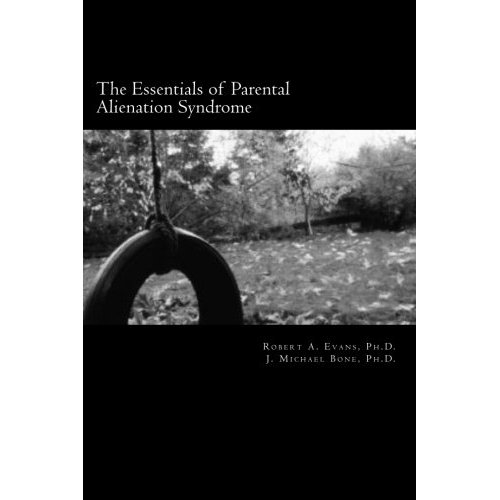Is hiring an expert worth it in family law cases involving Parental Alienation?
Educating the Court on Parental Alienation
Sometimes rejected (alienated) parents and their attorneys consider hiring an expert to help in their cases. Experts can take a variety of roles and one of these is that of giving instructional testimony. Experts are generally not inexpensive so parents want to know how effective experts can be in cases involving Parental Alienation (PA).
 The effectiveness of an expert in these cases depends on a number of factors, some of which include the:
The effectiveness of an expert in these cases depends on a number of factors, some of which include the:
• Court
• Favored Parent
• Expert
The Expert
As you have read in previous blogs, there are many factors involved when determining the success of an expert witness in PA Cases. Success or failure depends on the expert and his or her testimony as well as the expertise of the attorney who hires them. In cases where a child is rejecting a parent for no apparent valid reasons, the expert needs to be knowledgeable about Parental Alienation. Some attorneys and judges question whether PA actually exists and they believe that in fact it’s a natural consequence of the divorce process and children “usually get over it”. Part of their argument is that PA is not in the DSM-5 and there is controversy in the mental health profession. Some believe that this pattern of behavior is normal. In reality, nothing could be further from the truth as will be discussed below.
Experts worth hiring know the Rules of Evidence the particular state that they are testifying in. Some states apply the Frye Rule, others the Daubert Rule, others a combination and still others neither. Given a particular state’s application of the rules of evidence, the expert you want to hire is prepared to support his or her testimony in terms of the rules. Experts who can educate the court know that without such preparation, the expert’s testimony will be rejected or given little or no weight.
The idea that PA is something new and is untested is wrong. The subject of Parental Alienation has indeed been around for a very long time. From Greek Mythology to psycho-dynamic practitioners to cognitive psychologists; all have described children rejecting parents or parents manipulating children away from the other parent from their own unique theoretical perspective. While each has referred to PA with different terminology, they have done so in a similar manner.
So, does Parental Alienation really exist?
The vast literature in this area clearly presents evidence that PA, even among adolescents, is abnormal, can persist for many years, and is associated with extensive psychological damage. I will share more on this topic in the next article.
After divorce most children want more contact with their parents, not less. The literature fails to support the idea that Parental Alienation is primarily a temporary phase during divorce. In a few instances it can be short-term, but generally it’s long lasting and can be extreme, having a significant impact on a child’s developmental process.
In one Parental Alienation study (and there are many) conducted by Amy Baker of adults who reported being alienated as children, the disrupted parent-child relationship lasted for at least six years in all cases and continued for more than 22 years for half the sample.
The forensic psychology field has expanded and grown, and now includes many perspectives on the issue of Parental Alienation. To say one perspective or theory is more correct or others have failed only serves to distract from the credibility and momentum that has been established to date. Introducing a diversion within our field as if we are fighting among ourselves will serve no one. There are certain venues where the terminology of “Alienation” or “Parental Alienation” are unacceptable, so the expert needs to be aware of those settings and adjust accordingly. By adjusting accordingly, the discussion needs to center around behavior not terminology.
For example, we discuss visitation interference or blocking, parent-child relationships that have characteristics of pathological enmeshment, children rejecting a parent without cause, children denigrating a parent with the same vocabulary as the favored or alienating parent, etc.
The use of use diagnostic terminology is a convenience in communicating with other professionals in the same field. When mental health professionals are presenting to other professionals in other fields, the expert needs to be sensitive to not over do our own jargon (i.e. psychobabble). The courtroom, especially, is not a place to engage in psychobabble; the audience will get lost and the expert will be ineffective.
While there are some who continue to use the wording of Parental Alienation Syndrome (PAS), most forensic experts have changed the designation of this disorder since the publication of the DSM-5. Our application for inclusion of Parental Alienation Disorder into the DSM-5 did not include the word Syndrome. It would be very beneficial to increase trainings in this area not only for mental health professionals, but for those in the legal profession as well.
The expert is usually examined by the rejected parent’s attorney in the form of hypothetical questions. That is, questions that are based on the facts in the particular case being heard but are not presented so as the expert is to provide a definitive recommendation as to custody arrangements or parenting plans. Mental health professionals cannot give a diagnosis or definitive recommendation without having met the parties, the children and conducted an entire protocol of evaluative assessments. This prohibition needs to be repeated throughout the testimony as it generally gets lost on those listening to the expert.
Ultimately the success of the expert’s testimony lies in how effective he or she was in informing the court of the issue under consideration. In this blog the issue is primarily PA. Parental alienation continues to be a controversial issue that must be presented as nothing short of child abuse that can have devastating consequences on children, both in the short-term, as well as for the rest of their lives.
We are now witnessing, obtained through comprehensive parent histories, a cyclical pattern to the alienation process where children who have been alienated from a parent grow up to be alienating adults. They have learned the manipulative ways of the favored parent and basically know no other way to function in their environment.


